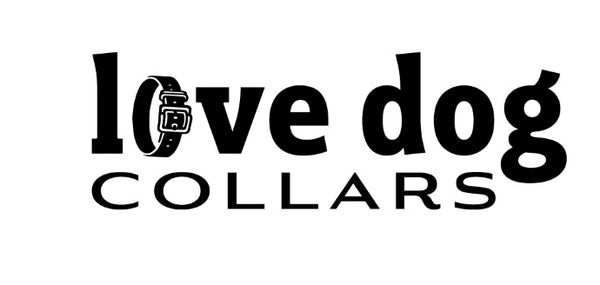Choosing the right collar for your dog is more than just a matter of style—it's about ensuring your pet's safety and comfort. A well-fitted collar helps to control your dog and can also hold important information like ID tags. Here's a comprehensive guide to help you choose the right collar size for your furry friend, using specific measurements and breed recommendations.
General Fit Guidelines
When fitting a collar, it should be snug enough to fit two fingers comfortably between the dog's neck and the collar. This ensures that the collar is not too tight to cause discomfort or too loose to slip off. Let's dive into the specific collar sizes for different breeds and weights.
XX SMALL (Up to 5 lbs.)
Common Breeds:
- Chihuahua
- Teacup Yorkshire Terrier
Neck Size:
- 6 - 8 inches
Recommended Leash:
- 5/16 inch width
For the tiniest of dogs, the XX Small collar size is perfect. Breeds like Chihuahuas and Teacup Yorkshire Terriers have delicate necks that require a lightweight collar. Ensuring a proper fit is crucial to avoid any potential injuries or discomfort. Always check that the collar is not pressing into the neck too tightly, as these small breeds are particularly sensitive.
X SMALL (5-10 lbs.)
Common Breeds:
- Miniature Dachshund
- Maltese
- Pomeranian
- Toy Poodle
- Yorkshire Terrier
Neck Size:
- 8 - 12 inches
Recommended Leash:
- 3/8 inch width
For slightly larger small breeds like Miniature Dachshunds and Pomeranians, an X Small collar is ideal. These dogs still require a delicate touch, but they have a bit more room for a collar that provides both comfort and security. A 3/8 inch wide leash is perfect for these breeds, offering control without being too heavy.
SMALL (10-25 lbs.)
Common Breeds:
- Cavalier King Charles Spaniel
- Pekingese
- Miniature Schnauzer
- Pug
- Scottish Terrier
Neck Size:
- 10 - 14 inches
Recommended Leash:
- 5/8 inch width
Small breeds that fall within the 10-25 pound range, such as the Pug and Miniature Schnauzer, require a small-sized collar. This size ensures that the collar is sturdy enough to handle their strength while still being comfortable. The recommended leash width of 5/8 inch provides a good balance of control and ease of handling.
MEDIUM (Up to 55 lbs.)
Common Breeds:
- Beagle
- Border Collie
- Boston Terrier
- English Bulldog
- French Bulldog
Neck Size:
- 14 - 20 inches
Recommended Leash:
- 3/4 inch width
Medium-sized dogs like Beagles and Border Collies need a medium collar that provides both durability and comfort. These breeds are active and require a collar that can withstand their energy. A 3/4 inch wide leash is ideal, offering enough strength to control the dog without being cumbersome.
LARGE (Up to 75 lbs.)
Common Breeds:
- Boxer
- Dalmatian
- Golden Retriever
- Labrador Retriever
- Weimaraner
Neck Size:
- 16 - 26 inches
Recommended Leash:
- 1 inch width, 2 ply for strong pullers
Larger breeds such as Golden Retrievers and Labradors require a large collar that can handle their size and strength. These collars need to be robust and durable. For dogs that tend to pull, a 2 ply, 1-inch wide leash is recommended. This provides the necessary strength and control for walking powerful dogs.
X-LARGE (75+ lbs.)
Common Breeds:
- Bernese Mountain Dog
- Great Dane
- Mastiff
- Rottweiler
- Saint Bernard
Neck Size:
- 24 - 30 inches
Recommended Leash:
- 1.5 inch width, 2 ply for strong pullers
For the largest breeds, such as Great Danes and Saint Bernards, an extra-large collar is necessary. These dogs have very strong necks and require a collar that is both large and sturdy. A 1.5 inch wide leash with 2 ply construction is essential for handling these powerful dogs, ensuring safety and control during walks.
Tips for Measuring Your Dog's Neck
- Use a Soft Tape Measure: Wrap it around the base of your dog's neck where the collar will sit. Ensure it's not too tight.
- Two-Finger Rule: After measuring, add two fingers' width to the measurement to ensure the collar will fit comfortably.
- Adjustable Collars: Opt for collars that are adjustable within the size range to accommodate any slight fluctuations in your dog's neck size.
- Check Regularly: Dogs can grow or lose weight, so it's important to regularly check the fit of their collar and adjust as necessary.
Importance of the Right Collar
A properly fitted collar is crucial for several reasons:
- Safety: Prevents your dog from slipping out and getting lost.
- Control: Provides a way to manage your dog during walks or in potentially dangerous situations.
- Identification: Holds important tags with your dog's ID, making it easier to reunite if lost.
- Comfort: Ensures your dog is comfortable and happy, avoiding chafing or neck injuries.
Conclusion
Choosing the right collar size for your dog is an essential part of responsible pet ownership. By following the guidelines based on your dog's breed and weight, you can ensure that your furry friend stays safe, comfortable, and stylish. Remember to regularly check the fit and condition of the collar to keep your pet healthy and happy. Happy collar shopping!

